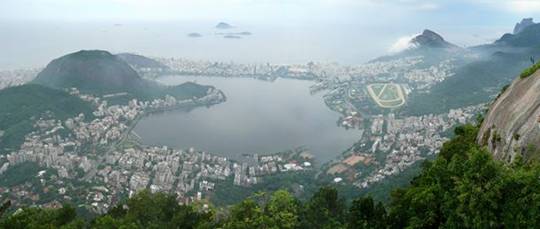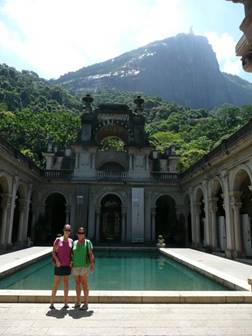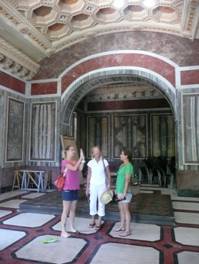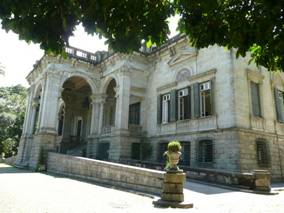Date:
19 March 2010
Position:
Rio De
Janeiro
There is a tropical flower that closes in the rain to
protect its petals. In this state it is dull and uninteresting. But when the sun
comes out, it re-blossoms giving a vibrant display of natural beauty and colour.
And so with Rio. Rio is not a city
that can be appreciated in the rain. Even its residents, the Cariocas, hide
their beauty in the rain. Most of them simply stay at home until the sun
re-emerges and they venture out once more into the leafy sun-speckled roads
leading down to the white beaches and the sparkling Atlantic surf. In the
sunshine Rio re-blossoms into a colourful, warm,
friendly, vibrant city.

Lagoa da Rio De Janeiro – from the top of
Corcovado
Rio was carved out of the tropical
jungle and despite all the concrete, tarmac and brick the jungle encroaches back
into the city. The magnificent trees found in the thick forests in the hills
surrounding Rio also thrive in the pretty city streets
and provide a shady canopy in the charming residential areas of Urca, Ipanema
and Leblon. Parasitic orchids cling to the trunks whilst monkeys tempted into
the city by the easy pickings of food leap from tree to tree. Below, the
Cariocas that aren’t enjoying the many magnificent beaches that front
Rio wander through the shady streets or enjoy a drink or
a meal in one of the many bars and restaurants that spill on to the pavements.
This is the civilised and beautiful
Rio, but there is a darker side to the city as well.
Surrounding the leafy middle class districts are the favelas, the slums that
have grown indiscriminately up the hills around the city. In ramshackle houses
built from any material that can be salvaged or stolen, millions live in
appalling conditions with little or no sanitation or fresh running water.
Controlled by drugs barons, they are lawless, dangerous areas where even the
police dare not venture. To say that Rio is a dangerous city where you can’t
walk around without being mugged or worse would be completely wrong, but one
needs to know which are the safe areas and which are not – and this is where
local guidance is invaluable. Enter cousin Vivien and her husband Marcelo who
have been our guides, mentors and tireless hosts.
On Friday, Vivien and her daughter Ana took us off for
our first sightseeing tour of Rio. First stop, Parque
Lage, a magnificent Italian villa built in the middle of the city in the 1920’s
in a vast area of landscaped parkland which is a stunning combination of formal
Italian gardens and Brazilian forest.
Vivien’s mother is of the Lage family and although the family fortune was
confiscated by the government in the Second World War (long story) and Parque
Lage has been home to the Visual
Arts
School for many years, Vivien and Ana
still felt a little proprietorial as they showed us round the house and
gardens.

Ana & Vivien in the
courtyard

The marble-lined concert
hall

Parque Lage
Second stop on our cultural tour was also once a private
home, built in 1950 by Walter Moreira Salles , banker and diplomat. Artistic
philanthropist, he spared no expense in commissioning the finest modern
architects and landscape artists of the day in creating what is now a venue for
film, visual art and photographic exhibitions. There was an excellent exhibition
of Charles Landseer paintings and sketches of
Brazil.
Exhausted by our cultural morning we lunched on
traditional Brazilian morsels in an excellent bar / restaurant in Leblon. A
quick pit-stop back to the boat for a much-needed siesta (culture is SO
exhausting for a simple sailor), and then back into town for dinner with Vivien
and Marcelo. Although we have stayed with them in the past at their home in the
country, we had not been to their apartment in Rio
before. It’s right up there with the Moreira Salles house we visited earlier in
the day. If it’s not been featured in House & Garden or Architectural
Digest, it should have been. And the position is incredible. The entire frontage
of the apartment is glass which opens onto one of the prettiest of all the
beaches down the entire coast.
I like a good glass of wine but one of the problems with
the boat is that the ambient temperature down below tends, at about 35 degrees
C, to be a tad above that recommended for wine storage. So most of the wine is
cooked by the time we get to drink it.
Marcelo’s cellar, however, is temperature controlled and
stuffed with the finest wines. Combined with Vivien’s superb cuisine, it was a
great evening.




